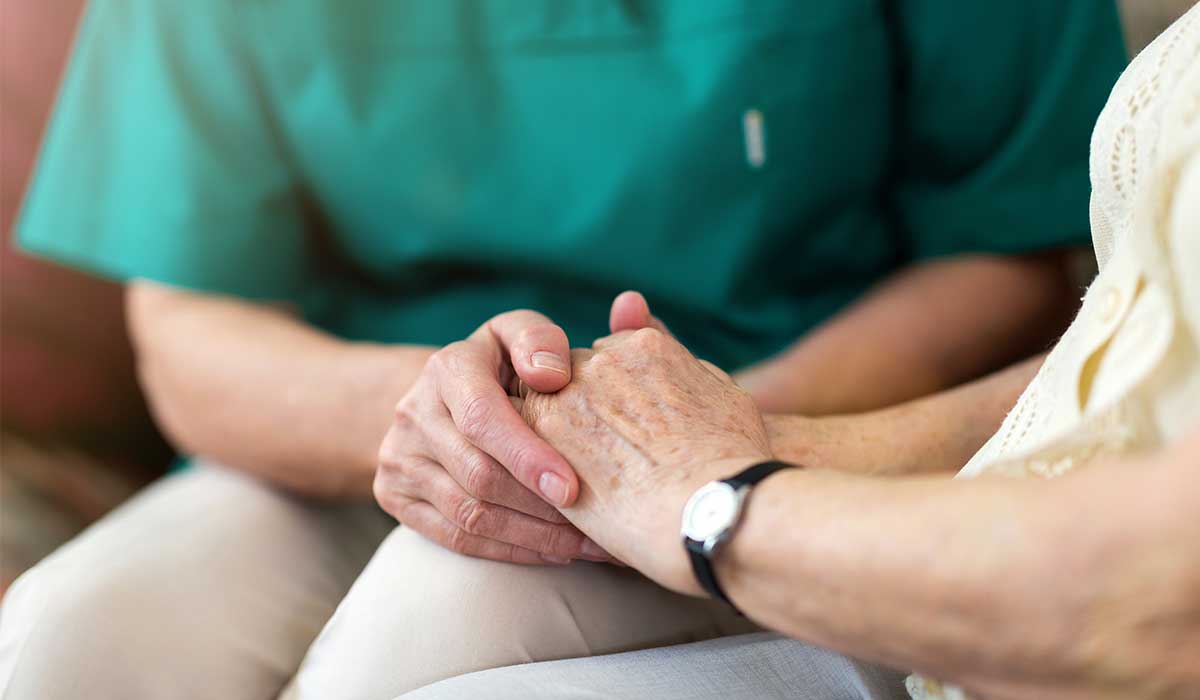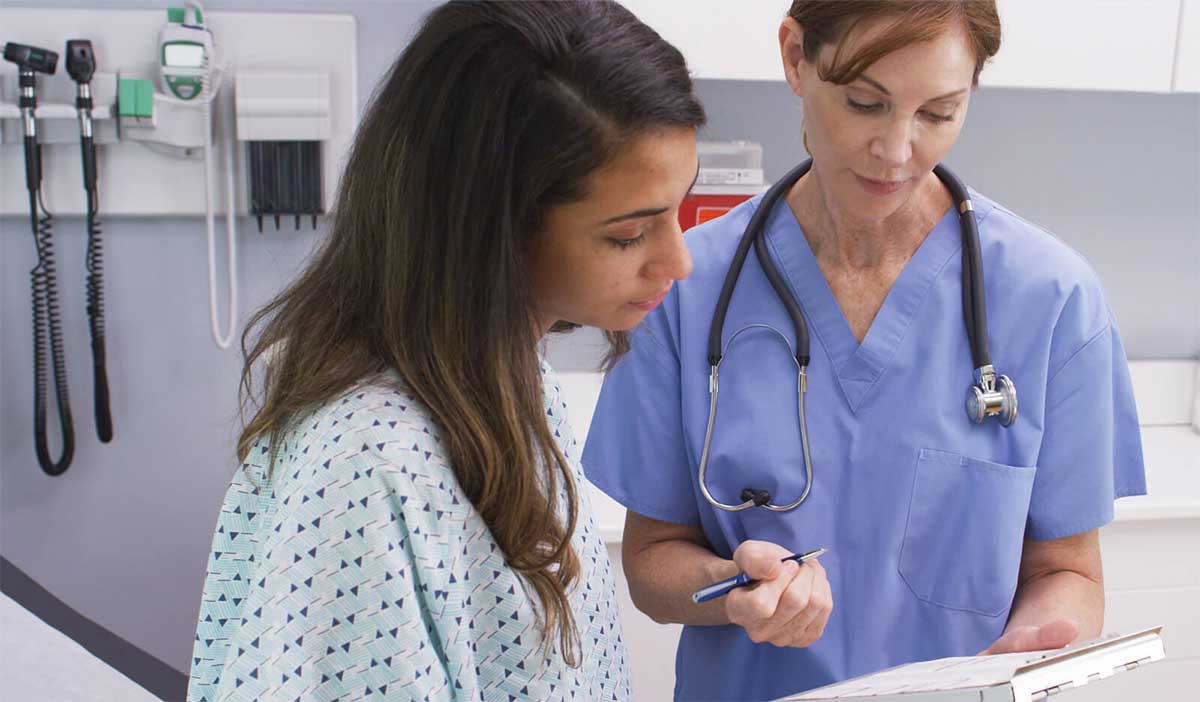
Undergoing treatment for cancer isn’t easy. Making sure to take care of yourself while getting chemo is one way to feel better and stay strong. And, when it comes to self-care for cancer patients, there is no one-size-fits-all solution.
Experts with experience helping people cope during their cancer journeys have many different recommendations for what can bring comfort.
In this blog post, we’ll cover tips to help you maintain resilience and stay hopeful. Review their suggestions and then determine which ones make the most sense for you.
It’s totally normal to ask lots of questions while navigating your cancer treatment.
In the following FAQ, the Logansport Memorial Hospital’s cancer care team provides quick answers to some of the most common things people ask about self-care for cancer patients.
From staying positive and finding comfort to regaining energy and coping with chemotherapy, we’ve got tips that can help you.
How do you stay positive while fighting cancer?
Staying positive while fighting cancer can be challenging, but it’s critical for your overall well-being. Here are four things you can do that will help you look on the bright side:
1. Set small goals
Setting small, achievable goals can help cancer patients feel a sense of accomplishment and control. For example, your goal might be to take a walk every day or read a book daily for 30 minutes. These activities are examples of self-care for cancer patients that can help you keep your mind on more positive things.
2. Focus on the present moment
Thinking about what’s happening right now can help you avoid getting overwhelmed by thoughts about future unknowns. Instead of worrying about what might happen down the road, focus on what you can do to feel better today.
3. Surround yourself with supportive people
Support systems can be found in many places. You might find support from close-to-home friends and family. You may even find the help you need from local support groups, neighbors, or members of any faith-based organizations to which you belong.
If you’re single or don’t have family or friends nearby to help, consider reaching out to social workers or patient navigators at the hospital. You may also want to consider looking for support from online communities for cancer patients.
4. Find meaning and purpose in your cancer experience
Receiving a cancer diagnosis has a way of making you rethink your priorities in life. How you process the news is different for everyone, and your thoughts about your diagnosis and what it means will likely change over time.
Though you might not think so right now, your cancer journey can be an opportunity for personal growth and development, helping you discover new things about yourself.
This time can also give you a reason to connect with people going through similar experiences and find ways to help others. For some, their cancer journey also gives them a reason to deepen their spiritual or philosophical understanding of life.
Some people may find meaning in volunteering. Writing or making art are other types of self-care for cancer patients that can help you through this time. The key is to be open to new experiences and explore what works best for you.
Discover the benefits of close-to-home cancer care
What do cancer patients need for comfort?
Here are four types of self-care for cancer patients that can provide comfort:
1. Spend time with people you love
Having your friends and loved ones around can provide emotional support and give you a sense of normalcy. Even little things—like cooking a favorite meal or taking a walk together so you have an opportunity to share your feelings—can be helpful types of self-care for cancer patients.
Plus, if you can, invite a loved one to come with you to your appointments.
2. Squeeze exercise into your day
Engaging in regular physical activity can help cancer patients feel better physically and emotionally. This can include things like taking a walk, doing yoga, or swimming. Exercise can help reduce stress, improve mood and boost energy.
3. Try relaxation techniques
Yoga, meditation, and deep breathing can help cancer patients feel more relaxed and calm. These techniques can help reduce stress and anxiety. They can also improve sleep.
4. Keep up with your hobbies
Doing the things you love can be a great way to distract from cancer treatment and provide a sense of normalcy. Examples of relaxing hobbies include activities like reading, watching a movie, knitting, woodworking, baking, golfing, putting together a puzzle, and even playing a musical instrument.
Get info about mental health and coping with cancer
How do you get energy back when you’re undergoing cancer treatment?
Three things you should do while getting chemotherapy to help you get back your energy:
- Try to get enough sleep and exercise
- Eat a healthy diet
- Find ways to manage stress
Some cancer patients may also find it rejuvenating to unburden themselves by discussing their stress with a counselor or other mental health professional.
What helps chemo patients feel better?
To feel better during chemotherapy, you should do your best to stay hydrated, eat a healthy diet, and get enough sleep. You may also find it helpful to talk to a counselor or other mental health professional about your feelings.
What do chemo patients need the most?
According to experts at the National Institute of Cancer, the four things that chemotherapy patients need the most while undergoing treatment include:
1. Let your loved ones be your cheerleaders
Having friends and family around to provide emotional support and help with daily tasks can make a big difference. This can include things like providing transportation to appointments, helping with meals, or just being there to listen and provide a shoulder to lean on.
2. Keep a positive attitude
Maintaining a positive attitude can help chemotherapy patients feel better and cope better with the treatment. This can include things like setting small goals, focusing on the present moment and finding meaning and purpose in the experience.
3. Get enough rest
Getting enough rest is essential for chemotherapy patients to help them recover from the treatment. This can include things like taking naps, going to bed early, and avoiding activities that are too draining.
4. Maintain a healthy diet
Eating a balanced diet can help cancer patients feel better and recover more quickly. A diet rich in fruits, vegetables, whole grains, and lean protein can provide essential nutrients that the body needs to fight cancer and recover from treatment.
Some specific foods that have been shown to have cancer-fighting properties include:
- Berries: Berries such as blueberries, strawberries, and raspberries are high in antioxidants, which can help protect cells from damage.
- Leafy greens: Vegetables such as spinach, kale, and broccoli are high in vitamins, minerals, and antioxidants.
- Cruciferous vegetables: Vegetables such as cauliflower, broccoli, and Brussels sprouts contain two compounds—sulforaphane and indole-3-carbinol—which are known to can help protect cells in your body from damage.
- Tomatoes: Tomatoes are high in lycopene, an antioxidant that may help reduce the risk of certain types of cancer.
- Fish: Fish such as salmon, sardines, and mackerel are high in omega-3 fatty acids, which may help reduce inflammation.
According to the American Cancer Society, it is important for cancer patients to avoid foods high in sugar, saturated fats, and processed foods because these foods can contribute to inflammation in the body, and chronic inflammation has been linked to an increased risk of cancer.
Additionally, consuming a diet high in sugar (such as baked goods, candy, ice cream, soda, and fruit juice) and saturated fats (such as butter, cheese, cream, fatty meats, and fried foods) can lead to weight gain and obesity, which can also be a risk factor for cancer.
Processed foods (such as packaged snacks, frozen meals, and canned soups) tend to be high in sodium, added sugars, preservatives, and artificial ingredients. These can affect the body's natural balance and can be hard to digest, especially for cancer patients who already have a weakened immune system.
How do you mentally get through chemo?
Mental preparation is important for getting through chemotherapy. Cancer patients can try to stay positive, focus on the present moment, and try to find meaning and purpose in their experience. Cancer patients may also find it helpful to talk to a counselor or other mental health professional.
It's worth noting that what works for one person may not work for another, so it's important to try different things and find what works best for you.
Additional self-care options and cancer resources
Self-care for cancer patients is a critical part of any patient’s cancer treatment journey. If you or someone you know has cancer, get the help and resources you need from the experts at Logansport Memorial Cancer Center.
Recognized as a trusted name for customized cancer treatment and the only center of its kind in the region, we offer a new approach to world-class cancer care. Get the support and care you need during your cancer journey from our team of experts.


